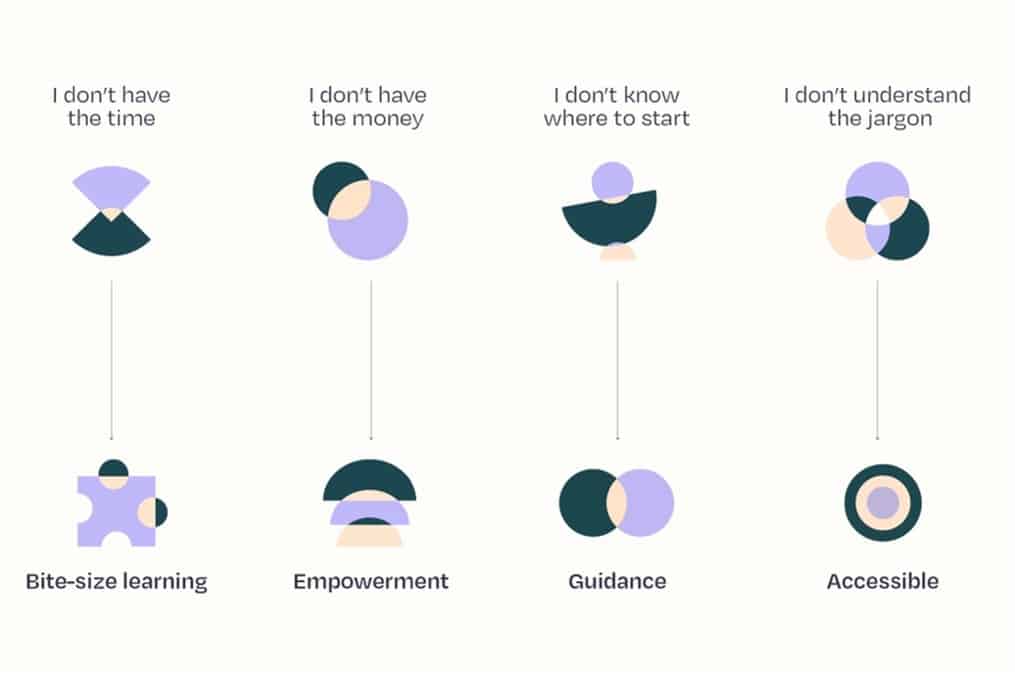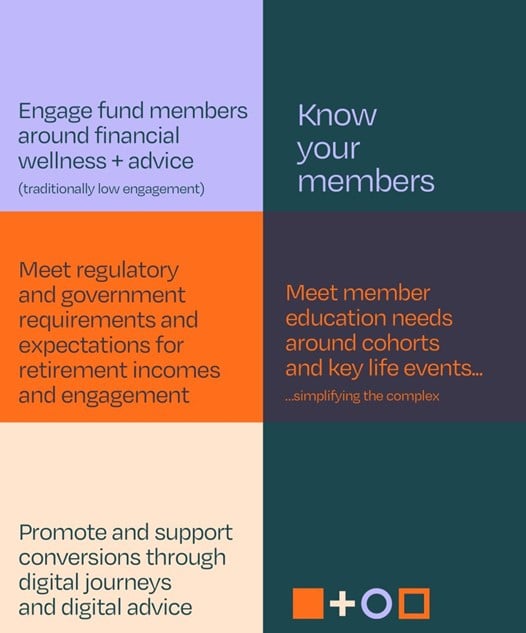In the face of increased competition and regulatory requirements and expectations focused on retirement income strategies, superannuation funds find themselves at a crossroads. And in this rapidly changing superannuation environment, funds must explore ways to address member challenges, especially for those members heading into retirement.
Growing pressure from competition and regulators
Heightened competition and market consolidation necessitates a shift to robust member education and engagement. Funds must strive not only to attract members but also to retain them.
This means that funds must not only understand their members’ needs but also provide them with the support, advice, education, and solutions required to successfully navigate the complexities of retirement planning.
As the Minister for Financial Services, Stephen Jones recently said,”…the future is likely to require more meaningful interactions between funds and their members…”
We believe that a substantial part of that is the way funds engage with their members in the digital sphere – and this now extends well beyond merely providing useful tools and generic calculators. In today’s user environment, engagement must also incorporate effective education and knowledge sharing.
They’re a key part of online retirement income strategies, but must be supported by relevant, relatable bite-sized education and plain English content, which is accessible and empowering.
The new realm of engagement
Drawing on more than 15 years of deep experience in the sector, SGY (formerly Spark Green) is collaborating with a growing number of super funds to help them more actively and holistically educate and engage with members, with a particular focus on digitising retirement income strategies and journeys.
Digital engagement must encompass a range of strategies, tools and solutions that educate, inform, advise, simplify and, most of all, provide assurance in decision-making.
Many superannuation funds currently offer online calculators to help members project their super balances and what they might retire with. While these calculators are a step in the right direction, they often fall short of true member engagement.
“We’re heartened by the regulators’ focus on engagement tools,” says Sharon Nelson, Managing Director of SGY. “It reinforces SGY’s approach to ensuring an equal focus between the underlying assumptions and mathematics and the member experience to make these tools engaging, educational and useful.”
Education + engagement: the bigger picture
“Well-functioning tools are great, but on their own they don’t provide a complete solution.
“They’re a key part of online retirement income strategies, but must be supported by relevant, relatable bite-sized education and plain English content, which is accessible and empowering,” said Nelson.
Innovative tools, with the member firmly in mind from a design and experience perspective and supported by user analytics, are essential components of a broader engagement push by funds. These tools provide members with both the detail and the understanding they need to make informed decisions about their retirement planning.
Venturing into the world of digital advice for example can be really daunting for many people.
The first step is to overcome the barriers
It’s vital for the industry as a whole to help members overcome the knowledge barriers and dispel common myths and preconceptions around finance and advice.

“Venturing into the world of digital advice for example can be really daunting for many people. Often, they lack confidence, are unfamiliar with financial terminology, or have never encountered these types of financial concepts before. So how can we expect them to jump straight into digital advice journeys without the knowledge and confidence to do so?
“Similarly, they might feel they don’t have the time to devote to research or even enough super to make it worthwhile,” continued Nelson.
Knowing that member pain-points can exist well before proper engagement even commences, is critical, which is why fundamental education and easy-to-understand language, is so important.
360 degree digital engagement is the key
To bridge the knowledge gap and effectively interact with members digitally, SGY is working closely with proactive superannuation funds to innovatively engage with members and help them overcome these hurdles. This, in turn, empowers members to design their retirement their way, while building a deeper, more trusted relationship with their super fund.
The key is to create effective ways to raise awareness, and help fund members achieve greater knowledge, capability and confidence around retirement outcomes and goals.
Meeting the education + engagement challenges









